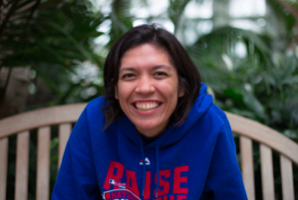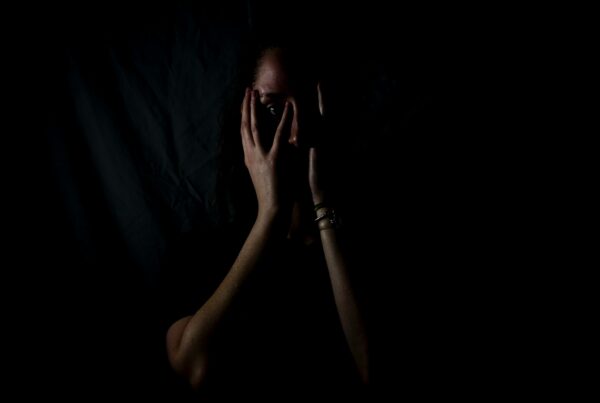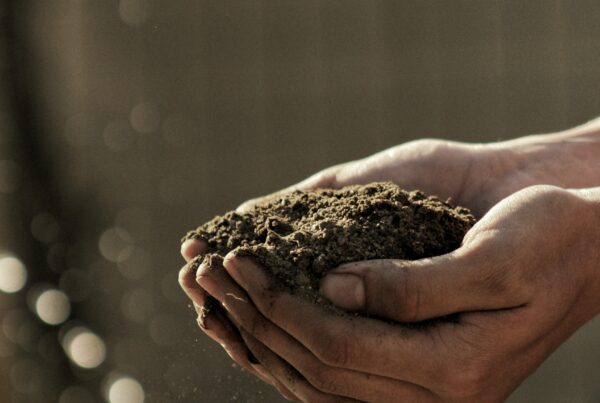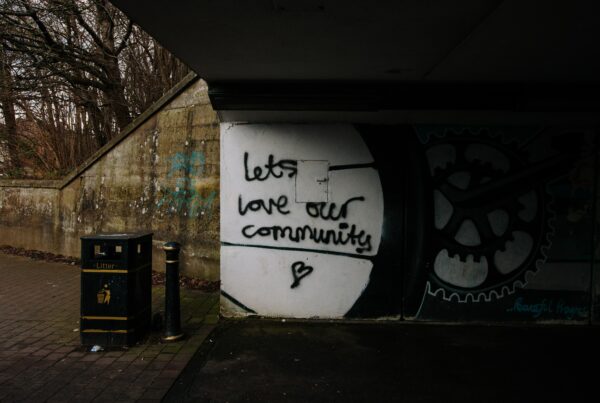Welcome to our blog series “Longing: Advent for Faithful Activists”. Advent, which means “coming”, is a season where we acknowledge that things are not as they should be. We are promised that this beautiful creation of which we are a part of will be restored. In the meantime, there is the chaos we experience. It reminds us that God’s Kingdom is now but not yet. Chasing Justice will be guiding our community through this Advent season with the following weekly resources:
- Sunday Instagram Lives inviting us into the week’s themes and lighting of the candle.
- Five-day weekly devotionals exclusive to Patreon with reflections, practices, and songs.
- Instagram posts for sharing your journey with friends.
- Guest blogs by BIPOC authors who will guide us as faithful activists.
Welcome our first guest contributor, Amanda Kliora.
It’s Nochebuena. My first greeting of the evening is a parol, the traditional Filipino star lantern. It hangs quietly on the front door, symbolizing an expression of shared faith, hope and the coming triumph of light over darkness. I turn the knob to find the door is already open, a doorway filled with the most chaotic pile of shoes. There are familiar and unfamiliar shoes, but it has never been uncommon to welcome strangers in our culture. When they enter that threshold and take off their shoes, they are family. It comforts me to see how we all have come together from the cold darkness outside to a place where the sounds of laughter and endless amounts of lumpia overflow. It’s holy ground. This is kapwa.
Kapwa has no English equivalent. The closest equivalent is “neighbor” or “kindred”. To live in kapwa is to share an inhabited physical and spiritual space where there is unity and the moral obligation to care for our fellow human. It is characterized by the fundamental recognition that I have a shared identity and a shared self. I can never fully be me without you. It is reflecting the image of God more fully because we are together and united in love. Kapwa is who we are called to be.
As a Filipino-American, I often find myself in great tension between my identities. In the Philippines, it is no secret that American colonization had a great impact on the history of Filipinos worldwide. According to Professor Virgilio Enriquez, known as the Father of Filipino Psychology, “…once AKO (the I) starts thinking of himself as separate from KAPWA, the Filipino ‘self’ gets to be individuated as in the Western sense and, in effect, denies the status of KAPWA to the other.” Professor Enriquez saw the threat of Western influence on this core value of Filipino identity. With an awareness of kapwa, I and you are one and the same. The kapwa in us rejects injustice of all kinds as a natural outpouring of this awareness. Having grown up in America, however, many are completely unaware that this colonization led to the Philippine-American War, including a mass genocide of Filipinos to establish power in the Pacific.
Holding both a Filipino and an American identity alongside my faith feels contradictory in itself. On one hand, I am holding a keen awareness that I share an identity with others, including my enemies, while also holding that among many in predominantly white spaces of faith, I am expected to be separate from my culture in order to be more like Christ. While I know that kapwa is who we are called to be, I have far more often experienced the opposite by those who claim to be my brothers and sisters in Christ. What I long for is a chance to exist in a physical and spiritual space reflecting the whole body of Christ where I do not have to defend, give up, or explain my culture. I long for the ground where my brother or sister sees my need and meets it without seeing it as infringing on their own or their family’s time and resources. Instead, they see meeting my needs as meeting their own as if I actually was their sister.
As I step over the piles of shoes crowding the doorway, I am embraced by titos and titas who had only just seen me a few weeks ago at Thanksgiving but welcome me as if it has been ten years. I am introduced to kuyas and ates whom I have never met in my life. I am asked to bless my lolos and lolas, some whom I have known all my life and others who are new, with the mano po. It could very well be that all these people are biological relatives somewhere along our family tree, but it really makes no difference. After all, I am reminded that the home in which we are gathering is actually the home of my lolo’s (mom’s father) cousin. When my mom immigrated to the States, she left her parents and siblings behind. My lolo’s cousins welcomed us as if we were in their direct line. There was no distinction. My belonging in this spiritual and physical space began generations before I was born.
Sounds fill the home. At least three distinct languages are being spoken simultaneously. My Lithuanian dad has somehow found his way to the karaoke and is leading my titos and titas in song and dance. My little sister is running around somewhere with the other littles, keeping them entertained. No one actually knows what they are doing, but because she is their ate, everyone’s mind is at ease. My lola is gathering my cousins to sing carols with her in the other room as we approach midnight, awaiting the arrival of other family members. My other lola is beckoning me to eat more, but before I can finish my food or respond, she transfers her own pork barbeque skewers to my plate. I hear my mom gathering her titas to make sure that everyone has a gift even if this is their first Christmas with us. She made sure to carry a set of Christmas cards in her purse so no one would be forgotten when presents were distributed. One of my other titas reminds me of the dessert table and how a particular rice cake was made because they had heard it was my favorite.
As the night continues, we remember the hardships and celebrations we have shared. We thank God for bringing us through the year to be together in this space. We begin making plans for the next get-together, inviting those whose shoes were unfamiliar to join us again. As we prepare to say our goodbyes, the titas start wrapping up food for us in aluminum foil. My cousin runs upstairs to get our coats. He knows exactly which ones to bring down. The goodbyes last for another two hours. I dig through the chaotic pile of shoes in the doorway to find my own. I only slip them on when I am confident that we are actually leaving. We stand in the doorway with the door wide open for some minutes to share just one more embrace with family members. The door slowly closes and the last glimpse of light reminds me that this is yet a small foreshadowing of the Kingdom of God. We finally close the door behind us and walk out into the dark, quiet cold. Just as the parol was my first greeting of the evening, it is also my final goodbye of the night to this space of belonging to each other.
I long for kapwa outside of our Nochebuena gatherings. I long for it in our streets, in our gardens, in our schools, in our communities, in our justice system, in every person’s heart that has experienced loneliness and longing. I long for kapwa to fill every space. I long for all of us to take off our shoes, toss them into the chaotic pile, and notice the ground that we share with our neighbors is holy ground. Maybe then we could truly see and be with one another in a way where God’s image is on full display in our love for each other. For now, I dwell in this small taste of anticipation for the Kingdom of God.
In the words of the Christmas song “Ikaw ang Liwanag at Ligaya”, it is my prayer:
“Gawin kaming liwanag para sa isa’t isa. Pag-asang sumisinag sa pamilya at sa kapwa.”
“Turn us into bearers of light for each other. Let hope shine through us for our families and all Your people.”

Amanda is a Filipino-Lithuanian American, first generation kid who grew up in the suburbs of Chicago. She has spent her career teaching science abroad in both the Philippines and Central Asia, where she currently resides. She is an enneagram type 8, avid adventurer, climbing enthusiast, and cat mama to Oliver. Her passion exists in affirming the image of God in others and partnering with those she meets to bring about a just world.








This is a touching piece of writing, Amanda. The image you paint of your family, the inherent beauty found within Filipino culture, and a vision of what God’s heart for us, is a healing balm. Thank you for sharing!
Good job Amanda. Stay safe.